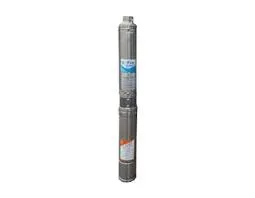Dec . 03, 2024 14:36 Back to list
Comparing Jet Pumps and Submersible Pumps for Optimal Water Solutions
Jet Pump vs. Submersible Pump A Comparative Analysis
When it comes to choosing the right pump for water supply and irrigation systems, two popular options often come to mind jet pumps and submersible pumps. Each type of pump has its unique characteristics, advantages, and disadvantages. Understanding these differences can help consumers and engineers make informed decisions based on their specific needs.
Jet Pumps
Jet pumps, also known as jet ejectors, are primarily used in shallow well applications. They operate by using a jet of high-speed water, which creates a vacuum that pulls water from the well into the pump. Jet pumps typically have a motor situated above ground, coupled with a suction pipe that goes into the well. Commonly, jet pumps are employed in situations where the water is located at a depth of up to 25 feet.
Advantages of Jet Pumps
1. Ease of Installation and Maintenance Since the motor is located above ground, jet pumps are relatively easier to install. Maintenance is straightforward, as the motor and other components are easily accessible.
2. Cost-Effective Jet pumps are generally less expensive compared to submersible pumps, making them a popular choice for homeowners who need a reliable but budget-friendly solution.
3. No Need for a Pressure Tank Many jet pump systems can function effectively without a pressure tank, simplifying the overall setup.
Disadvantages of Jet Pumps
1. Limited Depth Capability Jet pumps are less efficient when the water source is deeper than their effective range, typically around 25 feet. Beyond this depth, their ability to generate sufficient suction diminishes.
2. Lower Efficiency Jet pumps can be less efficient than submersible pumps, particularly in deeper applications, leading to higher energy consumption over time.
jet pump vs submersible pump

Submersible Pumps
Submersible pumps, as the name suggests, are designed to be submerged in water. They work by pushing water to the surface rather than pulling it, which allows them to be highly effective in deeper wells, often exceeding depths of 25 feet. The pump is housed in a sealed unit that is submerged in the water source itself.
Advantages of Submersible Pumps
1. Higher Efficiency and Capacity Submersible pumps are more efficient for deep well applications and can handle large volumes of water while operating at lower energy costs.
2. Space-Saving Design Being submerged in water, they take up no surface space, which is particularly advantageous in smaller installations.
3. Quiet Operation Submersible pumps operate quietly since they are submerged, making them ideal for residential applications where noise may be a concern.
Disadvantages of Submersible Pumps
1. Complex Installation and Maintenance Installing a submersible pump generally requires more complex procedures, including the need for specialized equipment. Moreover, if the pump requires maintenance, it often needs to be pulled out of the water, adding to labor costs.
2. Higher Initial Cost Generally, submersible pumps are more expensive upfront compared to jet pumps, which may not be suitable for budget-conscious buyers.
3. Potential for Corrosion If not made from the appropriate materials, submersible pumps can be susceptible to corrosion and pressure-related issues from prolonged underwater exposure.
Conclusion
Choosing between a jet pump and a submersible pump largely depends on factors such as the depth of the water source, installation requirements, budget constraints, and specific application needs. For shallow wells and cost-effective solutions, jet pumps may be the better option. In contrast, for deeper applications with higher water demands, submersible pumps provide better efficiency and performance. Ultimately, understanding the strengths and weaknesses of each pump type will enable users to select the most suitable option for their water management systems.
-
Submersible Water Pump: The Efficient 'Power Pioneer' of the Underwater World
NewsJul.01,2025
-
Submersible Pond Pump: The Hidden Guardian of Water Landscape Ecology
NewsJul.01,2025
-
Stainless Well Pump: A Reliable and Durable Pumping Main Force
NewsJul.01,2025
-
Stainless Steel Submersible Pump: An Efficient and Versatile Tool for Underwater Operations
NewsJul.01,2025
-
Deep Well Submersible Pump: An Efficient 'Sucker' of Groundwater Sources
NewsJul.01,2025
-
Deep Water Well Pump: An Efficient 'Sucker' of Groundwater Sources
NewsJul.01,2025
-
 Submersible Water Pump: The Efficient 'Power Pioneer' of the Underwater WorldIn the field of hydraulic equipment, the Submersible Water Pump has become the core equipment for underwater operations and water resource transportation due to its unique design and excellent performance.Detail
Submersible Water Pump: The Efficient 'Power Pioneer' of the Underwater WorldIn the field of hydraulic equipment, the Submersible Water Pump has become the core equipment for underwater operations and water resource transportation due to its unique design and excellent performance.Detail -
 Submersible Pond Pump: The Hidden Guardian of Water Landscape EcologyIn courtyard landscapes, ecological ponds, and even small-scale water conservancy projects, there is a silent yet indispensable equipment - the Submersible Pond Pump.Detail
Submersible Pond Pump: The Hidden Guardian of Water Landscape EcologyIn courtyard landscapes, ecological ponds, and even small-scale water conservancy projects, there is a silent yet indispensable equipment - the Submersible Pond Pump.Detail -
 Stainless Well Pump: A Reliable and Durable Pumping Main ForceIn the field of water resource transportation, Stainless Well Pump has become the core equipment for various pumping scenarios with its excellent performance and reliable quality.Detail
Stainless Well Pump: A Reliable and Durable Pumping Main ForceIn the field of water resource transportation, Stainless Well Pump has become the core equipment for various pumping scenarios with its excellent performance and reliable quality.Detail
